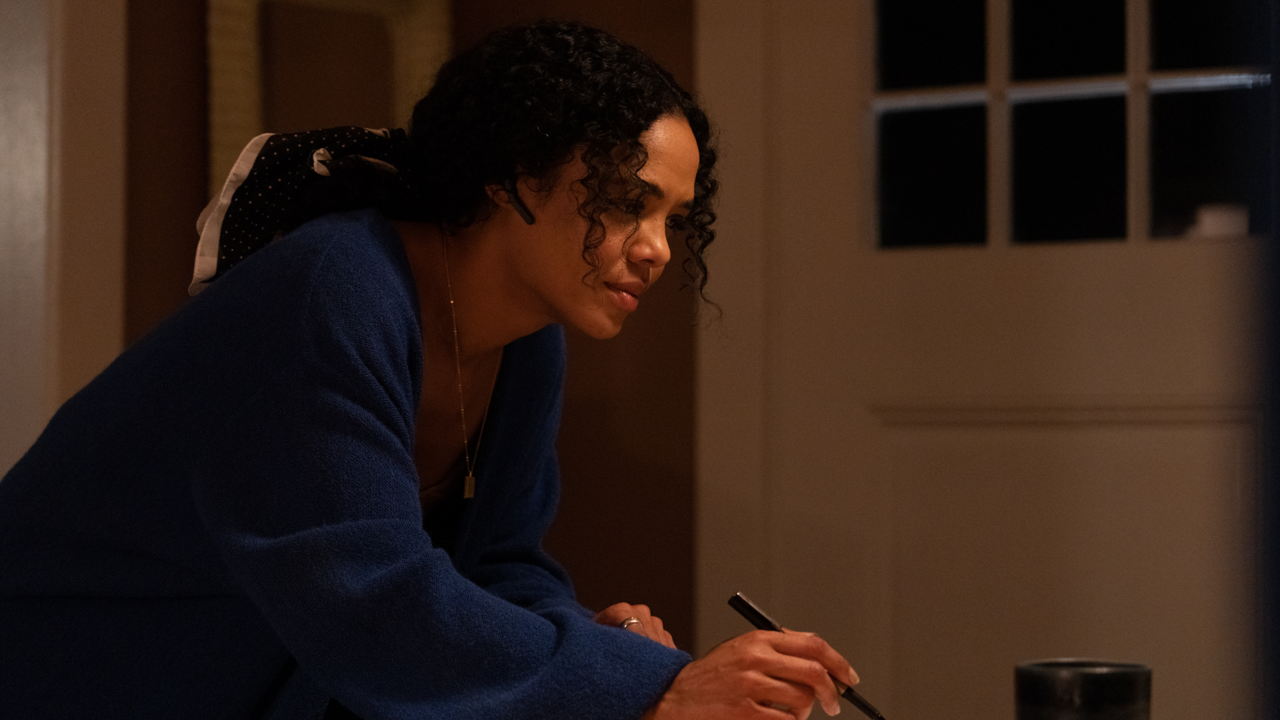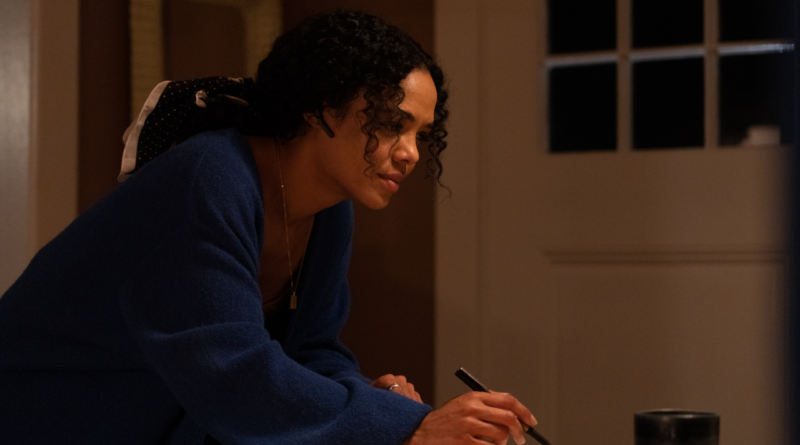‘The Listener’ review: Steve Buscemi, Tessa Thompson, and an earpiece make magic

A woman puts in an earpiece. It buzzes and she accepts the call. She talks to the caller, sometimes for a while, sometimes for just a short minute. The call ends, and she repeats the process over and over again. That’s really all that happens over the course of The Listener, but director Steve Buscemi and lead actor Tessa Thompson manage to wring something tense and thrilling from the simple action of talking and listening.
Thompson plays Beth, a volunteer at a night-time crisis helpline. On her very first call, we learn that this is her final month with the line, as these nights can get especially draining. The Listener wastes no time in showing how emotionally demanding Beth’s work is as the night goes on, immersing us in her world until we get a better understanding of why she does what she does.
The Listener is an intense character study of a helpline volunteer.

Beth accepts several calls throughout The Listener, from a formerly incarcerated man talking about life outside prison to a young unhoused woman worrying about her abusive boyfriend. Some callers dance around their biggest worries, others are blatantly honest. “I’m mentally ill, let’s get that out of the way,” one caller opens.
We never see any of the callers’ faces, we just hear their voices. (Voices include Rebecca Hall, Margaret Cho, and Alia Shawkat.) That means the entire film is spent locked on Thompson as Beth. Thompson’s performance is an enthralling example of tension between vocal and physical acting. She pitches her voice up ever so slightly, putting as much warmth and friendliness as she can into her words. But her body betrays her true feelings — sometimes concern flickers across her face, even as she assures the caller she isn’t worried. In one vignette, a caller admits that he deepfaked revenge porn of a woman he know, and all Beth can do is squeeze a stress ball in response.
As the night wears on, we see Beth’s facade begin to slip and crack ever so slightly. Her voice will deepen at her most concerned moments. We learn her real name isn’t Beth. Later, we’ll learn why she volunteers for the helpline in the first place. Thompson remains captivating throughout all these separate calls and all these minor changes, even when The Listener may overstay its welcome.
The Listener is mesmerizing, but exhausting.
Buscemi lures us into a rhythm with The Listener, hitting us with call after call until we feel as tired as Beth must be by the end of her shift. The film roots us firmly in Beth’s world the entire time, although sound always bleeds through from the calls to riveting effect. We can’t see what the callers look like, but we can imagine where they are based on what we hear through the earpiece.
Some calls break up the rhythm. The creep who made revenge porn brings The Listener into nightmare territory as he antagonizes Beth and makes her wildly uncomfortable. Later, a former professor debates the morality of dying by suicide, placing Beth in quite literally a life or death situation.
The Listener fumbles a bit in the latter call. Here, it begins to work toward a grand conclusion, but it feels too moralistic and pat for a film that has up until now felt far more natural. Perhaps it’s because we’ve already sat through so many calls by this point in the movie, or perhaps it’s because the caller begins to focus more directly on Beth when we’ve already been able to infer so much about her through her actions, but this call is where The Listener begins to drag. It’s not enough for The Listener to lose you entirely, though. Thompson remains engaging, and Buscemi switches up the location of this call to keep us somewhat on our toes.
The Listener may tire you out with its deluge of callers and their traumas, but Thompson roots us in reality throughout. Buscemi’s direction is also effective, as he situates different calls in different areas of Beth’s house in order to break up the night. Can the movie’s intimate scope sometimes work against it? Yes. But does it remain a moving, fascinating piece of isolated filmmaking? Most definitely.
The Listener was reviewed out of its North American premiere at the 2023 Tribeca Film Festival.
